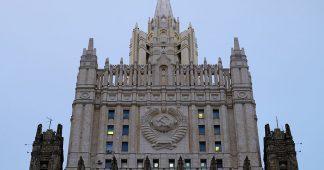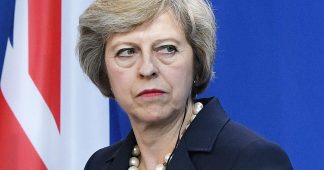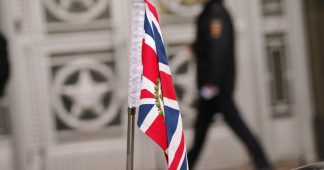UK-Russia ties worsen as May threatens more measures
By
Posted on
Britain’s relationship with Russia wasn’t great to begin with, but continues to worsen this week as the May government “retaliates” against Russia for the poisoning of a former Russian spy, a retaliation which seems premature given Russia hasn’t been proven to be the culprit.
Britain has expelled 23 Russian diplomats on Wednesday, and is threatening more measures, potentially including asset seizures. Prime Minister Theresa May is also threatening further acts “in secret” against the Russian Federation.
Britain started the investigation into the poisoning with the assumption Russia was behind it, and has clung to that assumption ever since. It’s not clear how much investigating is even happening, as publicly nothing new is being presented beyond the cursory narrative and evidence, as always, is non-existent.
Russian officials are complaining that they would’ve been more than willing to cooperate in an investigation if asked. Instead, Britain chose “confrontation” as an alternative.
Even US officials seem unsure how to react to Britain’s precipitous escalation of tensions, and the US is no stranger to pinning blame on a politically convenient culprit without evidence. The White House tried to distance itself, citing lack of information, and Rex Tillerson’s sacking on Tuesday was seemingly related to him endorsing Russia. Despite this, Ambassador Nikki Haley also declared Wednesday that the US believes the British narrative.
The lack of evidence is a serious problem, however, especially with perfectly plausible alternative explanations. Even if the poison turned out to be Russian-made, experts say it would not be unlikely for such poisons to have been stolen in the post-Soviet era.
It is likely the “new Cold War” mentality of the US, UK, and other NATO members driving this rush to both settle on a story where Russia is to blame, and to hastily start carrying out measures against them. Lacking proof, however, there remains the danger that Britain is mistaken, and picking a fight with Russia for no reason.











